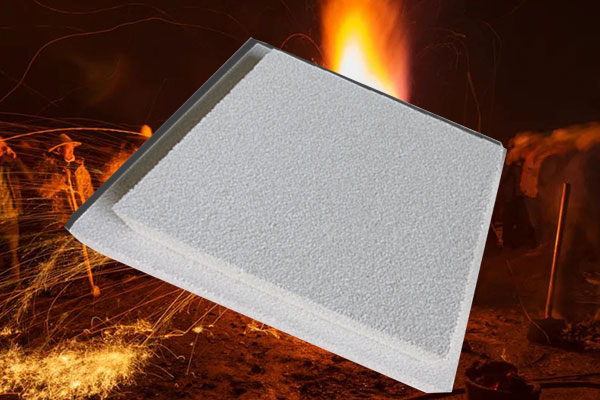Ceramic Foam Filter Ural Aluminium can effectively remove various oxide inclusions produced in the process of Aluminium smelting through physical adsorption and chemical action, so as to reduce casting defects and improve casting quality.
Selection of Ceramic Foam Filter Ural Aluminium specifications depends on melt flow rate and total flow rate. If the flow rate is large, the total amount of passage is large, and the aperture of the filter plate is small, the larger size should be selected. When purchasing filter materials, the effective specific surface area or porosity calculation of foam should be carefully evaluated.
Observe the uniform state of mesh holes on the surface of the filter plate, and then observe the uniform state of mesh holes on the cross-section of the ceramic foam filter plate.

The development history of the Russian aluminium industry
In 2006, The company continues to expand its raw materials and production base: it has acquired a controlling interest in Eurallumina (Italy), a cathode plant in Shanxi, China, a controlling interest in Aroaima Mining Company (Guyana), and a controlling interest in the Boksitogorsk aluminium smelter. In December 2006, Rusal launched the Khakas aluminium smelter, the industry’s first production facility to be built in Russia after a 20-year hiatus.
In 2007, The merger of RUSAL, SUAL and Glencore (Switzerland) created the joint company RUSAL, the largest aluminium producer in the world. RUSAL began implementation of two major projects: construction of the Boguchansky aluminium smelter and construction of the Taishet aluminium smelter.
In 2008, Rusal bought more than 25 percent of Norilsk Nickel, the world’s largest producer of nickel and palladium and one of the largest platinum and copper producers. The company subsequently partnered with Samruk Holdings to form a joint oil extraction company operating from the Ekibastuz coal deposit in Kazakhstan and purchased Taigu Cathode Components manufacturing facility in China. In Nigeria, Rusal started production at its ALSCON plant.
In 2009, During the global economic crisis of the late 2000s, the company encountered some serious difficulties. Demand for aluminium plummeted to historic lows and prices fell with it, naturally taking a big hit to the company’s finances and leading to tensions with creditors. A series of measures aimed at cutting costs, optimizing production and reducing production costs enabled the company to survive the crisis with minimal losses, while laying a foundation for further development and diversification of the business. Between October 2009 and December 2009, Rusal signed a number of agreements with Russian and foreign banks to restructure debts totalling $16.8bn. As a result, the company owes $7 to various foreign banks. $4 billion underwent a four-year restructuring, with an option to extend the deal for another three years. A total of 70 credit institutions participated in the restructuring, modifying about 50 loan agreements.
Despite the problems encountered during the crisis, in July 2009 Rusal successfully completed the environmental modernization of the Krasnoyarsk aluminium smelter, which started in 2004. The final phase of the project is the opening of a new gas treatment centre using a new dry gas washing method.
In 2010, RUSAL shares are listed on major stock exchanges worldwide and in Russia: Hong Kong Stock Exchange, NYSE Euronext Paris, MOEX and RTS.
The company began to cooperate with Hong Kong University of Science and Technology, focusing on joint research and development, knowledge and experience sharing between professors and students in Russia and Hong Kong University.

